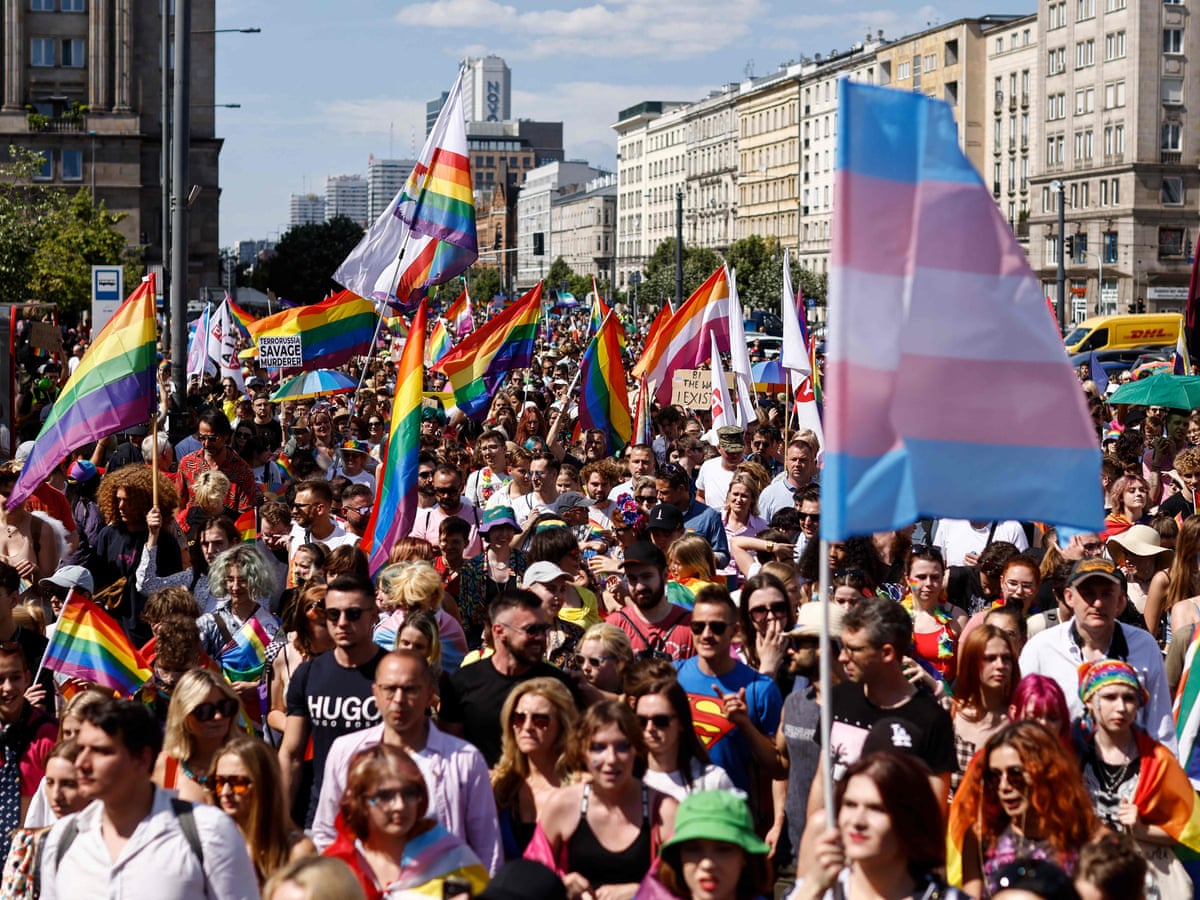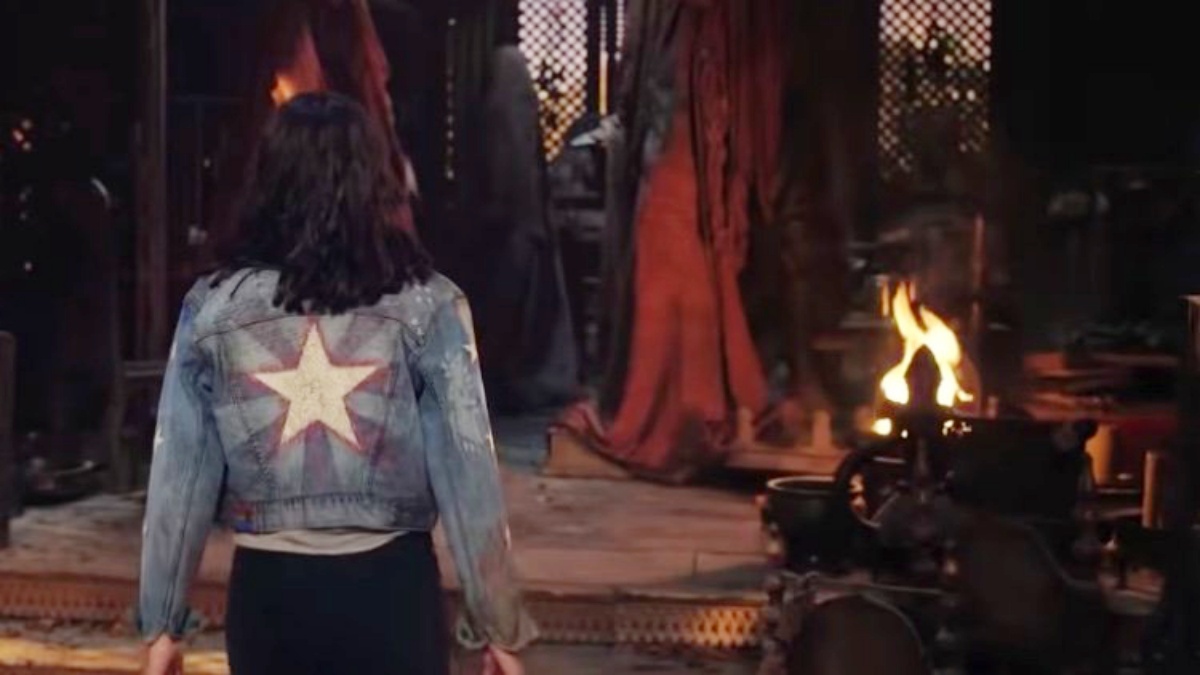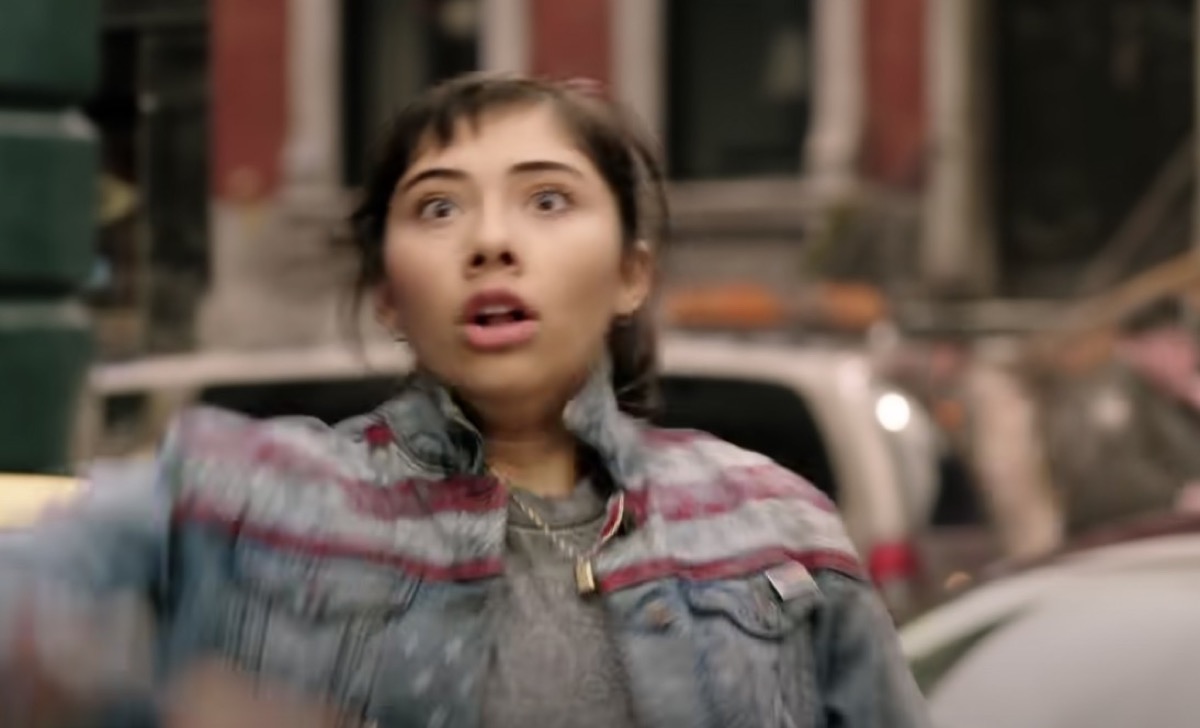In recent years, the conversation surrounding LGBTQ+ representation in mainstream media has gained considerable traction. Fans of comics and superhero movies have long anticipated the arrival of queer characters on the big screen, yearning for authentic and powerful portrayals that do justice to the diverse spectrum of identities in our world.

With the announcement that America Chavez, one of Marvel’s most iconic lesbian superheroes, would appear in Doctor Strange in the Multiverse of Madness, many hoped this would mark a milestone for queer representation in the Marvel Cinematic Universe (MCU). However, now that the movie has hit theaters, it’s clear that the portrayal of America Chavez is not just underwhelming—it’s a disservice to both the character and the community she represents.
For those unfamiliar, America Chavez, also known as Miss America, is a powerful superhero in the Marvel comics. Hailing from the Utopian Parallel, a dimension outside of time and space, America’s origin story is one of heroism and sacrifice.
Her two mothers gave their lives to seal a black hole threatening their home, an act that profoundly influenced America and set her on the path of a superhero. She’s known for her incredible strength, speed, flight, and the ability to kick open star-shaped portals across dimensions. America is also openly lesbian, a fact that is central to her identity and is celebrated within the comics.
The introduction of America Chavez to the MCU was met with both excitement and anxiety. Marvel and its parent company, Disney, have a checkered history when it comes to LGBTQ+ representation. While the studio has made strides in recent years, the results have often been half-hearted at best—blink-and-you-miss-it moments of queerness that can easily be edited out for international markets.

As a result, fans were cautiously optimistic about how America Chavez would be handled in her big-screen debut. Unfortunately, the film not only falls short of expectations but actively undermines what makes America Chavez such a compelling character.
From the very beginning, the representation of America’s queerness is lackluster. The movie does include a brief glimpse of America’s two mothers, who share a tender moment of giving each other flowers. However, this scene is quickly overshadowed by a trope that has long plagued queer characters in media: the “Bury Your Gays” trope.
America accidentally activates her powers out of fear when a bee startles her, opening a portal that drags her mothers into an unknown part of the multiverse. Rather than giving her mothers a heroic and dignified death, the film reduces them to victims of a child’s mistake. This erasure of their agency and heroism is a betrayal of America’s comic book origin, where her mothers’ sacrifice was a conscious and brave decision that inspired her to become the hero she is.

The movie’s handling of America’s sexuality is similarly disappointing. Instead of giving America a meaningful exploration of her identity, the film relegates her queerness to a few superficial details. America wears a rainbow flag pin and has the phrase “Amor es amor es amor” (love is love is love) on her jacket in faded red font.
These tokens of representation feel more like a lazy attempt to check a diversity box than a genuine effort to portray a lesbian character. The fact that Marvel chose to signal America’s identity with such generic symbols, rather than something more specific to her character, is frustrating. It’s not that there’s anything wrong with the rainbow flag or the phrase “love is love,” but these choices lack the specificity and depth that could have made America’s queerness feel authentic and integral to her character.
The most egregious failure, however, is how the movie completely bastardizes America Chavez’s character. In the comics, America is a force to be reckoned with—a confident, powerful, and independent hero who doesn’t need anyone’s help to save the day.
She’s a character who stands tall in the face of danger and refuses to back down. Yet, in Doctor Strange in the Multiverse of Madness, America is reduced to a damsel-in-distress. Throughout the film, she’s portrayed as a scared young girl who doesn’t have full control over her powers. Her abilities only manifest when she’s frightened, turning her into a passive character who spends most of the movie running away from danger rather than confronting it head-on.
This portrayal is not just a disservice to America Chavez as a character—it’s a disservice to the fans who have been waiting for a superhero who looks and loves like them. The decision to depict America as a helpless child rather than the confident and capable hero she is in the comics feels like a betrayal.

What makes this portrayal even more problematic is the broader context of representation in the MCU. America Chavez is one of the few women of color in the Marvel Cinematic Universe, and her role in the film perpetuates a troubling pattern. Women of color in superhero movies often get sidelined, reduced to supporting roles, or depicted as less competent than their white counterparts.
By turning America into a scared, inexperienced girl who needs to be saved, the film reinforces harmful stereotypes about women of color—namely, that they are weak, dependent, and in need of protection from more powerful, typically white, characters.
The film’s failure to properly represent America Chavez is especially disappointing given the harassment that Xochitl Gomez, the actress who plays America, faced in the lead-up to the movie’s release. Gomez, who is only 16 years old, was the target of hateful comments and online bullying from people who objected to the inclusion of a queer character in the MCU.
The fact that Gomez had to endure this kind of vitriol for a character who was ultimately so poorly represented in the film is heartbreaking. It’s a reminder of how far we still have to go when it comes to meaningful representation in mainstream media.

In the end, Doctor Strange in the Multiverse of Madness had the opportunity to introduce a new kind of hero to the Marvel Cinematic Universe—one who is unapologetically queer, powerful, and Latina. Instead, it gave us a watered-down version of America Chavez, one who bears little resemblance to the character fans know and love.
The film’s lackluster approach to representation not only does a disservice to America Chavez as a character, but it also sends a discouraging message to fans who have been waiting for better queer representation in the MCU.
As the MCU continues to expand and introduce new characters, it’s crucial that Marvel and Disney take a more thoughtful and intentional approach to representation. Queer characters deserve to be more than just background decoration or symbols; they deserve to be fully realized, complex individuals whose identities are an integral part of their stories.
Fans have been waiting too long for authentic representation to settle for the bare minimum. It’s time for Marvel to step up and do better—for America Chavez, for Xochitl Gomez, and for the countless fans who are looking for heroes who reflect their own experiences and identities.

The representation of America Chavez in Doctor Strange in the Multiverse of Madness may have been a missed opportunity, but it doesn’t have to be the end of her story. There’s still hope that future films or series in the MCU will do justice to this incredible character and give her the spotlight she deserves.
Until then, fans will continue to demand better representation and hold Marvel accountable for the stories they choose to tell.
News
😎👌🔥 Northern Illinois HC Thomas Hammock’s Emotional Victory Over Notre Dame
In the realm of college football, victories are often celebrated with exuberance and fanfare. However, some wins resonate deeper, touching the very core of human emotion. One such moment unfolded recently when Northern Illinois University’s head coach, Thomas Hammock, led…
🧎♂️ John Elway’s Controversial Stance: Kneel During the Anthem and Face the Consequences
In a bold and highly controversial move, legendary NFL figure and former Denver Broncos coach, John Elway, has ignited a firestorm of debate with his firm declaration that kneeling during the national anthem will no longer be tolerated on his…
🏋🏽🔥💪🏼🎧 THE HEARTFELT TRIUMPH: Coach Thomas Hammock’s Emotional Victory Over Notre Dame
In the world of college football, few moments resonate as deeply as a historic victory, especially when it comes against a powerhouse like Notre Dame. This past Saturday, Northern Illinois University (NIU) achieved the unthinkable by defeating the Fighting Irish…
🤼 The Controversy of Nike and Colin Kaepernick: A Deep Dive into Harrison Butker’s Bold Stance
In the world of sports, few topics ignite as much passion and debate as the intersection of politics and athletics. Recently, NFL kicker Harrison Butker has made headlines with his outspoken criticism of Nike, a brand that has been synonymous…
💶 Harrison Butker’s Bold Stand: Turning Down $25 Million from Nike
Harrison Butker, the star kicker for the Kansas City Chiefs, has made headlines for his audacious rejection of a staggering $25 million partnership with Nike. His bold statement, “Not even $1 billion could save their woke brand!” has sparked both…
🙀 Tua Tagovailoa’s Latest Concussion Scare: A Deep Dive into the Incident and Its Implications
In the world of professional football, injuries are an unfortunate reality, but few are as alarming as those that involve head trauma. The latest incident involving Miami Dolphins quarterback Tua Tagovailoa during a Thursday Night Football game against the Buffalo…
End of content
No more pages to load











